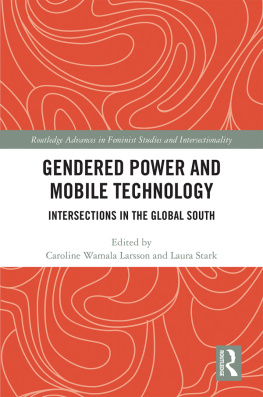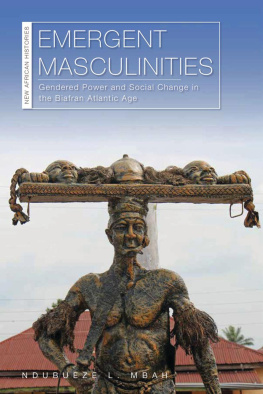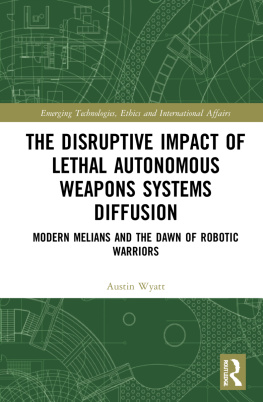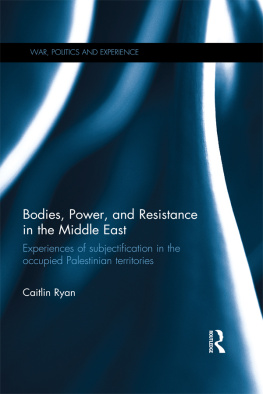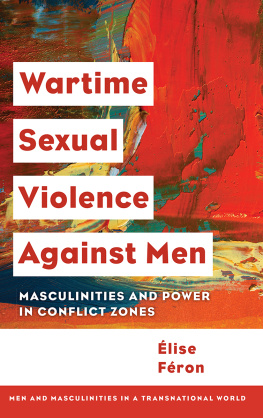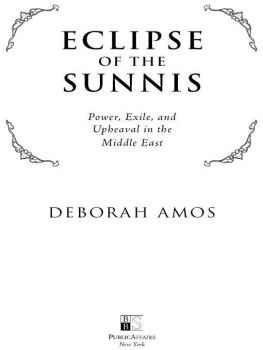
Gender, Power, and Military Occupations
Routledge Research in Gender and History
1 The Womens Movement and
Womens Employment in
Nineteenth Century Britain
Ellen Jordan
2 Gender, Sexuality and Colonial
Modernities
Edited by Antoinette Burton
3 Womens Suffrage in the British
Empire
Citizenship, Nation and Race
Edited by Ian Christopher
Fletcher, Laura E. Nym Mayhall
and Philippa Levine
4 Women, Educational
Policy-Making and
Administration in England
Authoritative Women Since 1800
Edited by Joyce Goodman and
Sylvia Harrop
5 Women, Gender and Labour
Migration
Historical and Global Perspectives
Edited by Pamela Sharpe
6 Women, Accounting, and
Narrative
Keeping Books in Eighteenth-
Century England
Rebecca Elisabeth Connor
7 The Educated Woman
Minds, Bodies, and Womens
Higher Education in Britain,
Germany, and Spain, 18651914
Katharina Rowold
8 Political Women
The Womens Movement,
Political Institutions, the Battle for
Womens Suffrage and the ERA
Alana S. Jeydel
9 Women, Education, and Agency,
16002000
Edited by Jean Spence, Sarah
Jane Aiston, Maureen M. Meikle
10 Gender, Migration and the
Public Sphere, 18502005
Edited by Marlou Schrover and
Eileen Janes Yeo
11 Gender, Property, and Law in
Jewish, Christian, and Muslim
Communities in the Wider
Mediterranean 13001800
Jutta Sperling and Shona Wray
12 Gender, Power, and Military
Occupations
Asia Pacifi c and the Middle East
since 1945
Edited by Christine de Matos and
Rowena Ward
Gender, Power, and Military
Occupations
Asia Pacific and the Middle East since 1945
Edited by Christine de Matos and
Rowena Ward
First published 2012
by Routledge
711 Third Avenue, New York, NY 10017
Simultaneously published in the UK
by Routledge
2 Park Square, Milton Park, Abingdon, Oxon OX14 4RN
Routledge is an imprint of the Taylor & Francis Group, an informa business
2012 Taylor & Francis
The right of Christine de Matos and Rowena Ward to be identified as the authors of the editorial material, and of the authors for their individual chapters, has been asserted in accordance with sections 77 and 78 of the Copyright, Designs and Patents Act 1988.
All rights reserved. No part of this book may be reprinted or reproduced or utilised in any form or by any electronic, mechanical, or other means, now known or hereafter invented, including photocopying and recording, or in any information storage or retrieval system, without permission in writing from the publishers.
Trademark notice: Product or corporate names may be trademarks or registered trademarks, and are used only for identification and explanation without intent to infringe.
Library of Congress Cataloging in Publication Data
Gender, power, and military occupations : Asia Pacific and the Middle
East since 1945 / edited by Christine de Matos and Rowena Ward.
p. cm. (Routledge research in gender and history ; 12)
Includes bibliographical references and index.
1. Control (Psychology) 2. Military occupation. 3. Sex role.
4. Violence. I. De Matos, Christine. II. Ward, Rowena, 1965
BF632.5.G46 2011
355.49081dc23
2011039884
ISBN: 978-0-415-89183-7 (hbk)
ISBN: 978-0-203-12346-1 (ebk)
To those who are currently experiencing occupation, and those who continue to deal with the legacies of former ones.
Contents
| 1 |
| CHRISTINE DE MATOS AND ROWENA WARD |
PART I
Asia and the Pacific |
| 2 |
| CHRISTINE DE MATOS |
| 3 |
| KINUKO MAEHARA YAMAZATO |
| 4 |
| HENRI MYRTTINEN |
| 5 |
| BRONWYN WINTER |
| 6 |
| MIYUME TANJI |
| 7 |
| MILIWANGA SANDY AND KATHLEEN CLAPHAM |
PART II
South Asia and the Middle East |
| 8 |
| MARCUS SCHULZKE |
| 9 |
| JOYCE WU |
| 10 |
| STEFKA HRISTOVA |
| 11 |
| ROSE SHOMALI MUSLEH |
| 12 |
| SHUBH MATHUR |
| 13 |
| KEIKO TAMURA |
Figures
| 2.1 |
| 2.2 |
| 6.1 |
| 6.2 |
| 7.1 |
| 7.2 |
| 7.3 |
| 7.4 |
| 7.5 |
| 7.6 |
| 12.1 |
| 12.2 |
| 12.3 |
| 12.4 |
1 Analyzing Gendered Occupation Power
Christine de Matos and Rowena Ward
Military occupations are implicitly masculine affairs. It is men who compose the majority of the military forces that undertake the tasks of occupation, and primarily men who command an occupation force. These men operate within the structures and culture of the hyper-masculinized military institution. Yet not only is the attempt to make masculinities more explicit in war, occupation and peacekeeping research quite recent, the more complex gendered impacts of military occupation have only begun to be interrogated. Women can be part of an occupation force. Both men and women are affected as the occupied. There are gender complexities and hierarchies within each side of the occupation power binary, that is within the occupiers and within the occupied. These webs of hierarchical and interactive gendered relationships are enacted in complex, diverse, and often contradictory ways. The aim of this edited collection of chapters by scholars, activists and those affected by occupation is to reveal the diversity of the gendered impacts of military occupation on both the occupier and the occupied. Attention is paid to the ways that occupation power is performed, negotiated and subverted on a daily basis through the questioning and interrogation of both normative and changing gender roles in occupation power hierarchies and in occupied societies and spaces.
Glenda Sluga (2004, 238) states that just as gender is crucial to understanding the canon of war, it is a critical aspect of the history of peacemaking, the conceptualization of post-war orders, and the definition of national and collective identities. This statement can also be applied to military occupationa place somewhere between war and peace. Gender and its role in the construction of hierarchical relations of power under conditions of military occupation is a neglected though fast developing area of research (Renda 2001) and informs the fundamental rationale for this collection. An analysis of the performance of gendered power will, in turn, shed light on the gendered (and raced, and classed) identities of those engaged in the performance of occupation power. Analyzing gendered occupation power triggers many questions. What were the relations of power between occupier men and occupied women? What about occupier and occupied men? How do women act as occupiers toward occupied women and men? How did occupied men and women negotiate or subvert their role in the occupation power dichotomy, and (re)construct an identity in a time of epistemic rupture borne from occupation? Does military occupation create opportunities for the reform of gender relationships, or does it conversely reinforce established patriarchal norms? Before these issues can be explored, it is necessary to define what we mean by military occupation.


